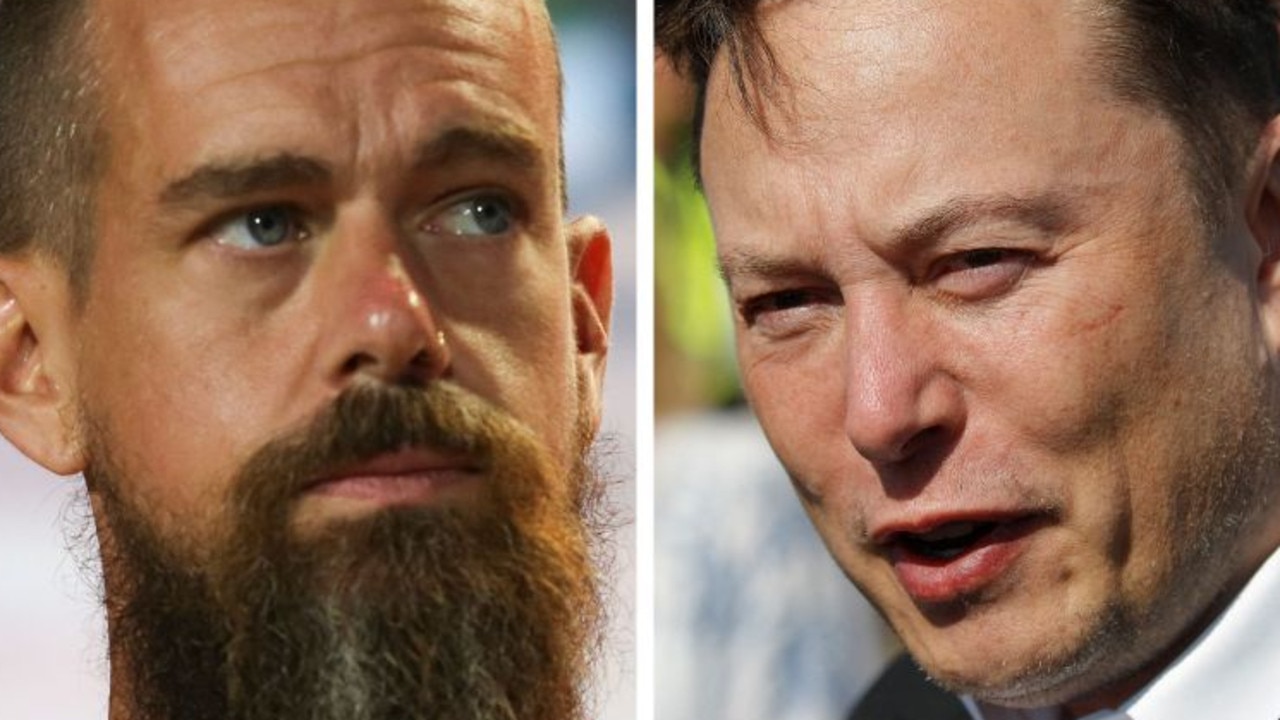The second instalment of Elon Musk’s “Twitter Files” reveal how the social media giant was allegedly secretly “black-listing” conservative tweets and users.
Independent journalist Bari Weiss detailed in a series of posts how Twitter used so-called “shadow banning” to limit the visibility of tweets coming from far-right users.
Conservative talk show host Dan Bongino, Stanford University’s anti-Covid lockdown advocate Dr. Jay Bhattacharya, and right-wing activist Charlie Kirk were among the users targeted for suppression by Twitter, according to Weiss.
The former New York Times and Wall Street Journal writer said the blacklists were built “in secret” and “without informing users”.
A new [Twitter Files] investigation reveals that teams of Twitter employees build blacklists, prevent disfavoured tweets from trending, and actively limit the visibility of entire accounts or even trending topics – all in secret, without informing users,” Weiss wrote in a tweet on Thursday.
She noted the company strayed from its original mission of giving “everyone the power to create and share ideas and information instantly, without barriers” by developing the methods to suppress specific individuals.
Dr Bhattacharya’s account, for example, was flagged as being on a “trends blacklist,” according to Weiss, who shared an image of his account from Twitter’s point-of-view with the yellow tag indicating the restriction.
“Take, for example, Stanford’s Dr. Jay Bhattacharya who argued that Covid lockdowns would harm children. Twitter secretly placed him on a ‘Trends Blacklist,’ which prevented his tweets from trending,” Weiss wrote.
An image of Bongino’s account showed a similar yellow notice that read “search blacklist”.
“Or consider the popular right-wing talk show host, Dan Bongino who at one point was slapped with a ‘Search Blacklist’,” Weiss wrote.
Weiss then shared an image of Kirk’s account with a “Do Not Amplify” message. ”Twitter set the account of conservative activist Charlie Kirk to ‘Do Not Amplify’,” the independent journalist tweeted.
Twitter has vehemently denied that it “shadow bans” users.
Weiss notes that top Twitter executives, including former head of legal policy and trust Vijaya Gadde and head of product Kayvon Beykpour, have denied in the past that the company “shadow bans” users.
“We do not shadow ban,” Ms Gadde and Mr Beykpour said in 2018, per Weiss, “And we certainly don’t shadow ban based on political viewpoints or ideology.”
“People are asking us if we shadow ban. We don’t. Read more to get all the facts,” the company also said in 2018 tweet.
That same year, Twitter co-founder and former CEO Jack Dorsey also claimed that the company didn’t restrict accounts with certain “political viewpoints”.
“We don’t shadow ban, and we certainly don’t shadow ban based on political viewpoints,” Mr Dorsey wrote in tweet.
“We do rank tweets by default to make Twitter more immediately relevant (which can be flipped off). More on ranking signals,” he added, linking to a company blog post co-authored by Ms Gadde, known as the company’s “censorship chief”.
Weiss reports that the practice of suppressing conservative voices is known internally as “Visibility Filtering” or “VF”.
“Think about visibility filtering as being a way for us to suppress what people see to different levels. It’s a very powerful tool,” a senior Twitter employee told Weiss.
“Visibility Filtering” allows the company to “block searches of individual users; to limit the scope of a particular tweet’s discoverability; to block select users’ posts from ever appearing on the ‘trending’ page; and from inclusion in hashtag searches,” according to Weiss.
“We control visibility quite a bit. And we control the amplification of your content quite a bit. And normal people do not know how much we do,” a Twitter engineer told Weiss.
Weiss found that the group responsible for deciding which accounts to blacklist was known as the Strategic Response Team – Global Escalation Team, or SRT-GET.
“It often handled up to 200 ‘cases’ a day,” according to Weiss.
But beyond SRT-GET, the secretive Site Integrity Policy, Policy Escalation Support team, or SIP-PES, was responsible for the most “politically sensitive decisions”.
“This secret group included Head of Legal, Policy, and Trust (Vijaya Gadde), the Global Head of Trust & Safety (Yoel Roth), subsequent CEOs Jack Dorsey and Parag Agrawal, and others,” according to Weiss.
“This is where the biggest, most politically sensitive decisions got made,” she added. The popular Libs of TikTok Twitter account is one conservative profile that Weiss says fell under the purview of the SIP-PES team.
In an image shared by Weiss, the Libs of TikTok account appeared to have a “Trends Blacklist” and had a red banner warning, “Do Not Take Action on User Without Consulting With SIP-PES”.
“Think high follower account, controversial,” a Twitter employee told Weiss of the types of accounts SIP-PES would handle. “There would be no ticket or anything” for these accounts, according to the employee.
Libs of TikTok, run by Chaya Raichik since November 2020, has over 1.4 million followers and is marked as “high profile” internally by Twitter.
According to Weiss, Ms Raichik says Libs of TikTok was suspended six times in 2022, with the bans lasting as long as week, for purportedly violating the company’s policy against “hateful conduct”.
However, an internal SIP-PES missive from October 2022, discovered by Weiss, notes that Libs of TikTok “has not directly engaged in behaviour violative of the Hateful Conduct policy” since the account’s seventh suspension.
“The committee justified her suspensions internally by claiming her posts encouraged online harassment of ‘hospitals and medical providers’ by insinuating ‘that gender-affirming healthcare is equivalent to child abuse or grooming,’ Weiss found, noting that “No action was taken” on a November 2022 tweet that revealed Raichik’s home address.
An internal Slack message obtained by Weiss from Twitter’s former global head of trust and safety revealed the company uses technicalities to restrict the visibility of tweets and subjects when a direct violation can’t be found.
Weiss also found that Mr Roth sought to expand “non-removal policy interventions like disabling engagements and deamplification/visibility filtering”.
“The hypothesis underlying much of what we’ve implemented is that if exposure to, e.g, misinformation directly causes harm, we should use remediations that reduce exposure, and limiting the spread/vitality of content is a good way to do that,” Mr Roth wrote.
“We got Jack on board with implementing this for civic integrity in the near term, but we’re going to need to make a more robust case to get this into our repertoire of policy remediations – especially for other policy domains,” added Mr Roth.
Weiss’s tweets followed Friday’s bombshell revelations by fellow independent journalist Matt Taibbi, whose Twitter posts were promoted by new company owner Elon Musk as “what really happened with the Hunter Biden suppression story by Twitter”.
Taibbi said his reporting uncovered the “extraordinary steps” Twitter took in response to the New York Post’s blockbuster scoop about Hunter Biden’s infamous laptop in October 2020, including “removing links and posting warnings that it may be ‘unsafe’.”
“They even blocked its transmission via direct message, a tool hitherto reserved for extreme cases, e.g. child pornography,” he wrote.
Taibbi said the decision was made behind the back of Twitter founder and then-CEO Jack Dorsey, with former general counsel Vijaya Gadde – who was reportedly fired by Musk when he took over in October – for “playing a key role”.
Undated, internal company messages showed Ms Gadde and others discussing how the company would cite concern the story was based on “hacked materials,” even though it had no evidence to support that notion.
A former employee reportedly told Taibbi that “everyone knew this was f**ked”.
But the company’s “response was to essentially to err on the side of … continuing to err,” Taibbi said.
In addition to suppressing the story, Twitter also locked out the Post from its main Twitter account after demanding the removal of six tweets – which the Post refused.
After a two-week stalemate sparked outrage at Twitter, the social media giant caved and unlocked the account, saying it was revising its “Hacked Materials Policy” and “updating our practice of not retroactively overturning prior enforcement”.
Last week, former Twitter head of trust and safety Yoel Roth admitted during an interview that it wrong to suppress the Post’s reporting, saying that “for me, it didn’t reach a place where I was comfortable removing this content from Twitter”.
And on Tuesday, Musk announced that he’d fired Twitter deputy general counsel Jim Baker, a controversial former top FBI lawyer, over his “possible role in suppression of information important to the public dialogue”.
Musk said he’d questioned Mr Baker about Twitter’s response to the laptop story and found his answers “unconvincing”.
Taibbi also tweeted on Tuesday that Mr Baker was behind the delay on Friday in releasing his “Twitter Files” tweets because he’d been “vetting” the underlying material “without knowledge of new management”.
Taibbi said Weiss uncovered Mr Baker’s involvement when she learned “that the person in charge of releasing the files was someone named Jim”.
“When she called to ask ‘Jim’s’ last name, the answer came back: ‘Jim Baker,’” Taibbi wrote.
“‘My jaw hit the floor,’ says Weiss.”
This article originally appeared on the New York Post and was reproduced with permission


















